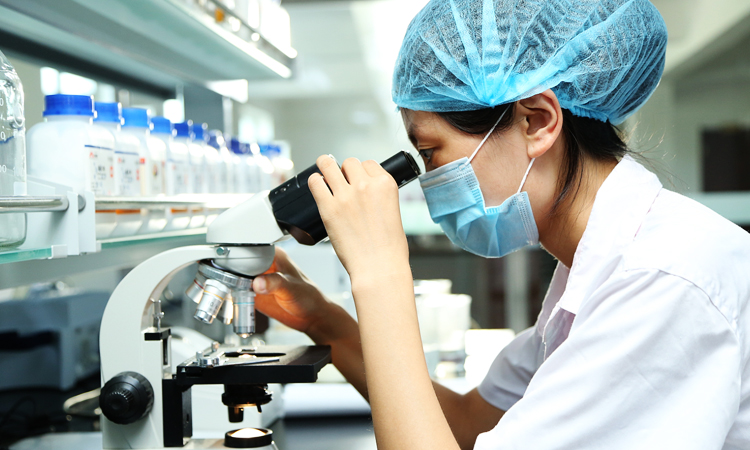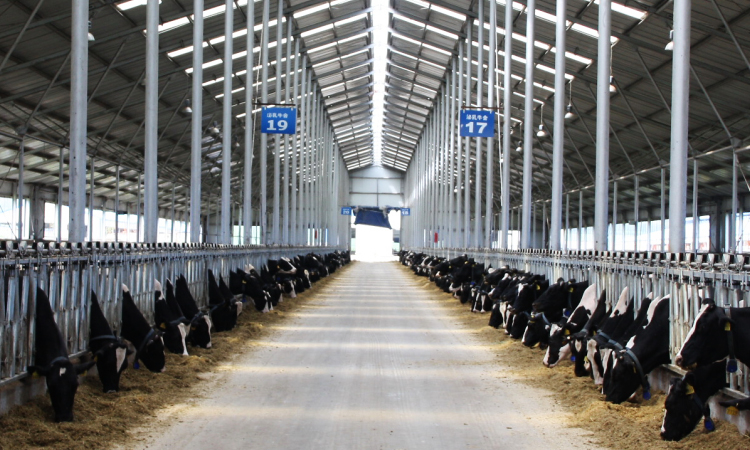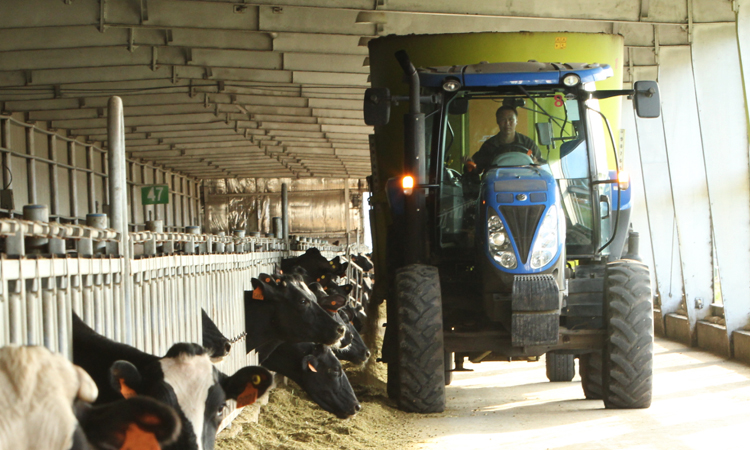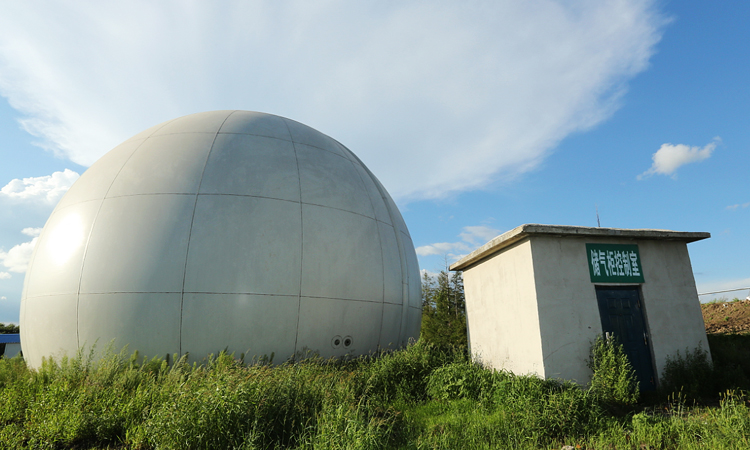Establish Free Stall Farm
All of our farms are constructed using the free stall design. Our well-designed and properly-constructed free stall farms lower our construction and maintenance costs, facilitate herd management and provide our dairy cows with comfortable, safe and stress-free living environments. The free stall design enhances cattle welfare because it allows the cows ample room for unrestrained movement and enables them to feed and exercise at will.
Feeding
Feeding is an important aspect of the dairy farm operations because of its direct impact on raw milk production, animal health and reproduction. Our procurement department is responsible for selecting suitable feed suppliers, purchasing feed and coordinating with our quality control personnel to ensure that the delivered feed meets our specifications and requirements. We have standardized feeding procedures for all farms to make sure that all of our cows are always fed the same way. Our feed is freshly prepared, formulated and delivered to the cows three times each day, and is pushed up the feed mangers so that cows can eat frequently and maximize their feed intake. Additionally, we have adopted the ‘‘grouping strategies’’ feeding method at all of our farms to ensure that our milkable cows at different stages of growth receive a balanced diet according to their physical condition.
Breeding
Breeding is important for reproduction, as well as for the quality and yield of raw milk. When Holstein heifers reach approximately 13 months old, they reach a suitable age for insemination. We inseminate the mature heifers and suitable milking cows using the semen of selected Holstein bulls from Canada and the United States, to improve the genes of future generations and to further increase milk yield. We also use sex-controlled semen for mature heifers in order to achieve significantly higher female birth rates, which will enable us to more aggressively grow the herd. All of our four farms are equipped with an automated activity monitoring system, an advanced heat detection technology that enables us to determine the best time to inseminate our cows. Additionally, the breeding technicians at our farms are trained to follow strict semen handling procedures and artificial insemination techniques. Such procedures and techniques enable us to increase the accuracy of heat detection in order to maximum the chance of pregnancy.
Milking
Milking is an important production process for dairy farms. Improper milking procedures or poor milking equipment may lead to the infection of udders, high levels of microbe count and SCC, thereby adversely affecting the safety and quality of raw milk. Good milking practices enable cows to be milked effectively and in a timely manner. We use standard milking procedures at all of our dairy farms. We carry out the extraction of raw milk in an automated and sanitary environment to ensure milk safety and quality. At our dairy farms, disinfectants are used both before and after milking to protect the cows from infection. Our raw milk is cooled immediately after it is milked from dairy cows and flows through a series of pipes to our central milk tank, which we maintain at 4°C. The raw milk is stored in the central milk tank for less than 24 hours before it is delivered to our customers.
Delivery
Most of our customers’ processing facilities are located within close proximity to our dairy farms, which enables us to deliver our raw milk in a timely manner to ensure its safety and quality. One of our customers, Aibeite, arranges for its own transportation of the raw milk they purchase from us. For other customers, we engage third-party logistics providers to deliver our raw milk directly to our customers.
Waste management
Waste management is critical to the daily operations of large-scale dairy farms and to environmental protection. The main waste produced on our dairy farms is cow manure. We have installed cow waste treatment facilities at all of our farms. Except for Zhenlai Farm Phase I, all of our dairy farms are equipped with power generation systems, which are currently in trial operation. The waste produced at these three farms is collected and processed through the power generation systems into biogas, which is in turn used to generate electricity. The remaining waste at these three farms and the waste produced at our Zhenlai Farm Phase I is recycled through the recycling systems for conversion into fertilizers, which is then hauled off to local suppliers who we have contracted to grow corn silage for our feed supplies.
Culling
We have adopted culling as part of our herd management practices to maintain the high quality and yield of raw milk produced by our herd. Female calves that are deemed unfit by our breeding and veterinary specialists are culled and either treated in accordance with our disease control protocols or sold. Our veterinary and breeding specialists monitor the health conditions of our dairy cows twice per day and grade the body condition of our dairy cows every month. The mature milkable cows will be culled and sold when they are no longer able to give birth to calves. Our culling program complements our controlled breeding efforts to continuously enhance the genetic quality, reproductive fitness and production yields of our herd over time.





